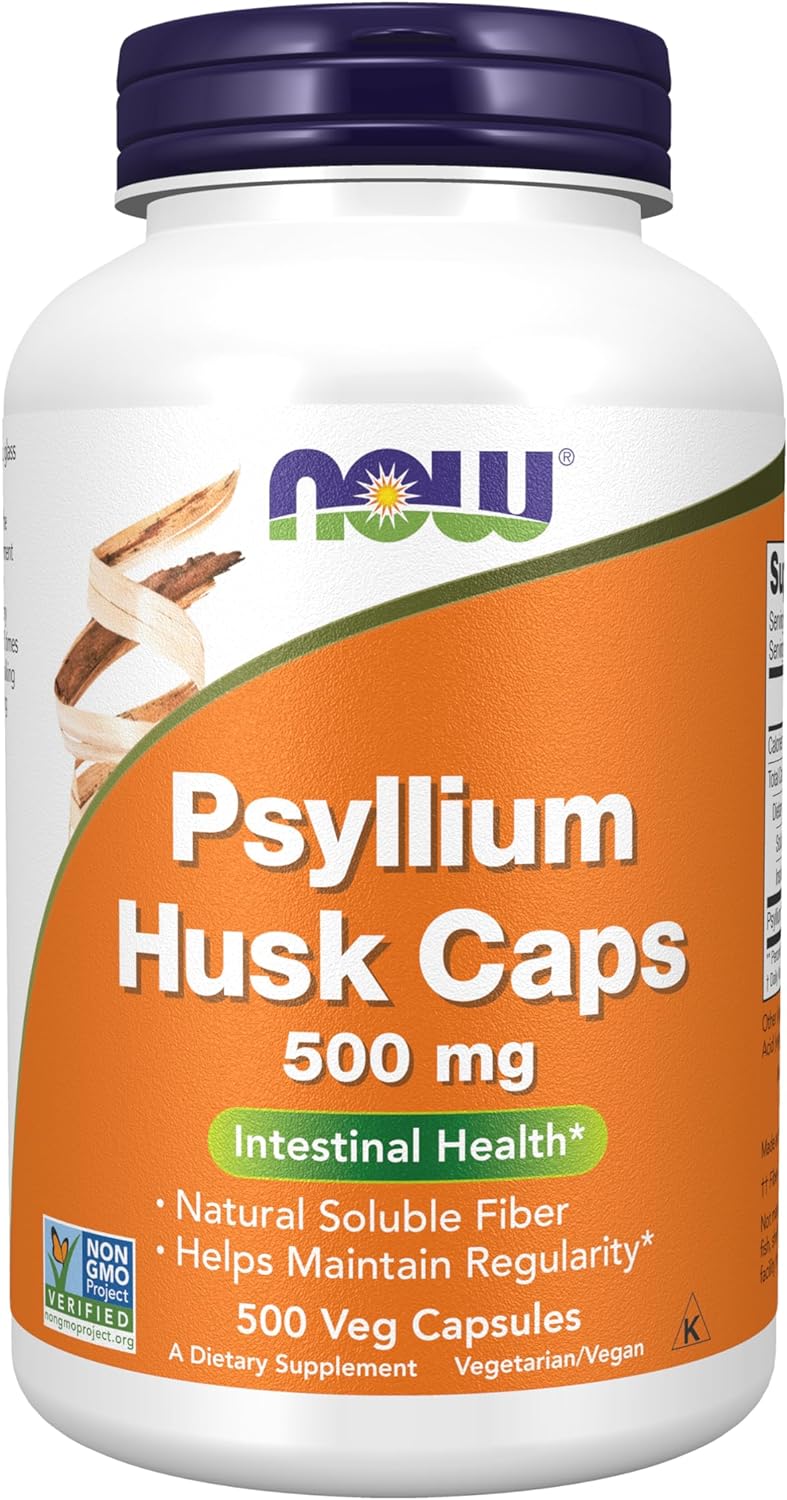
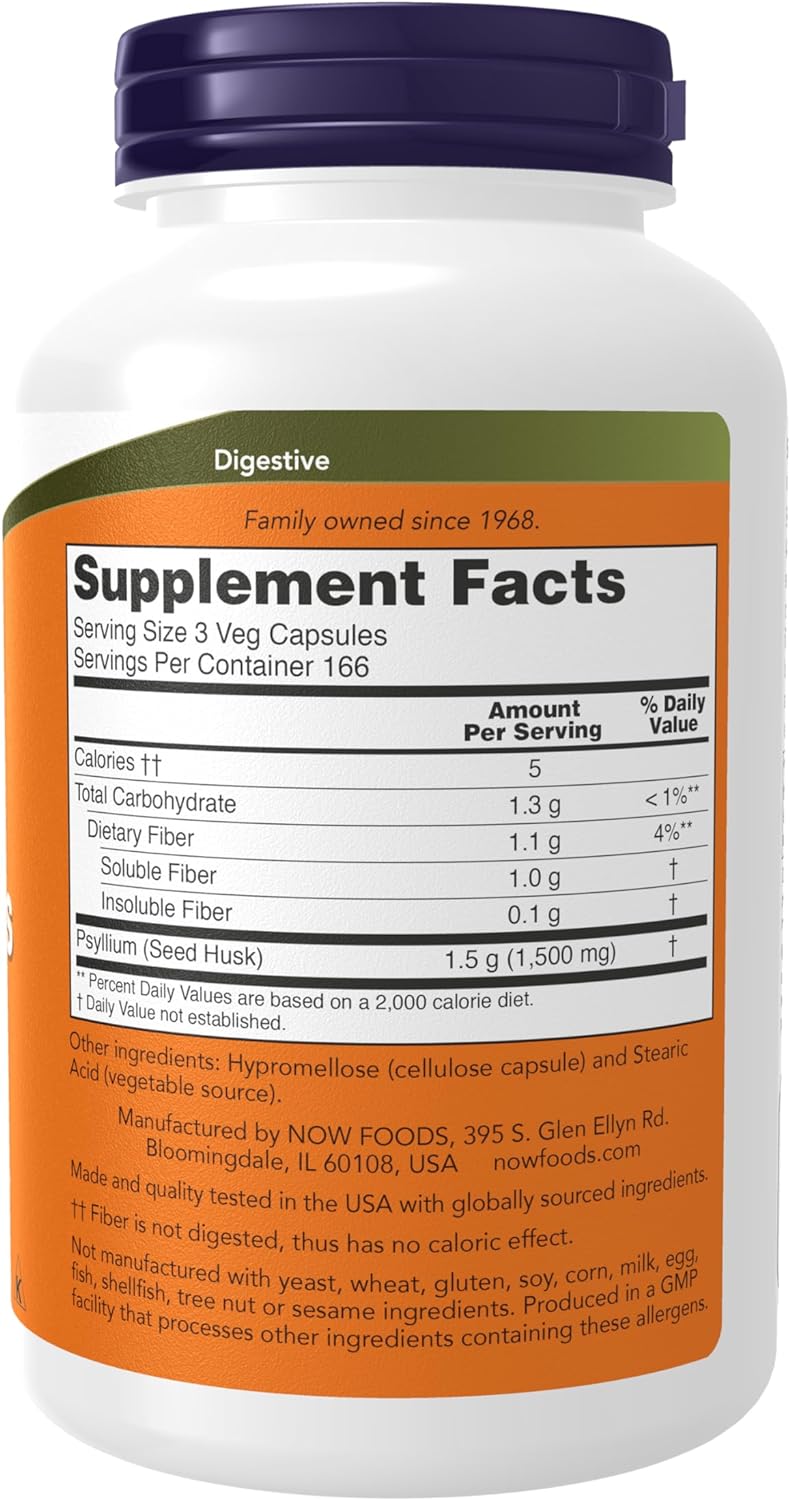
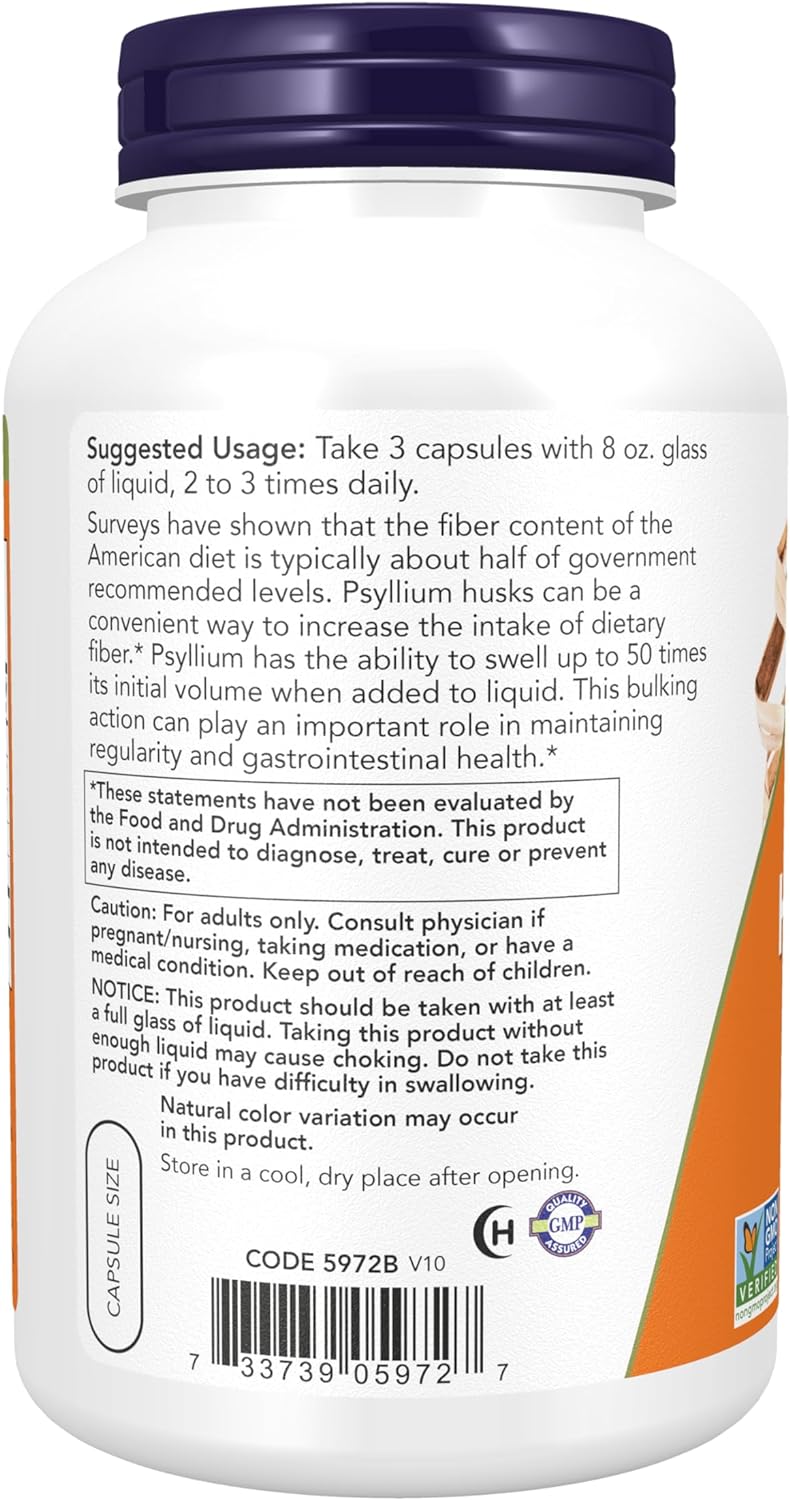
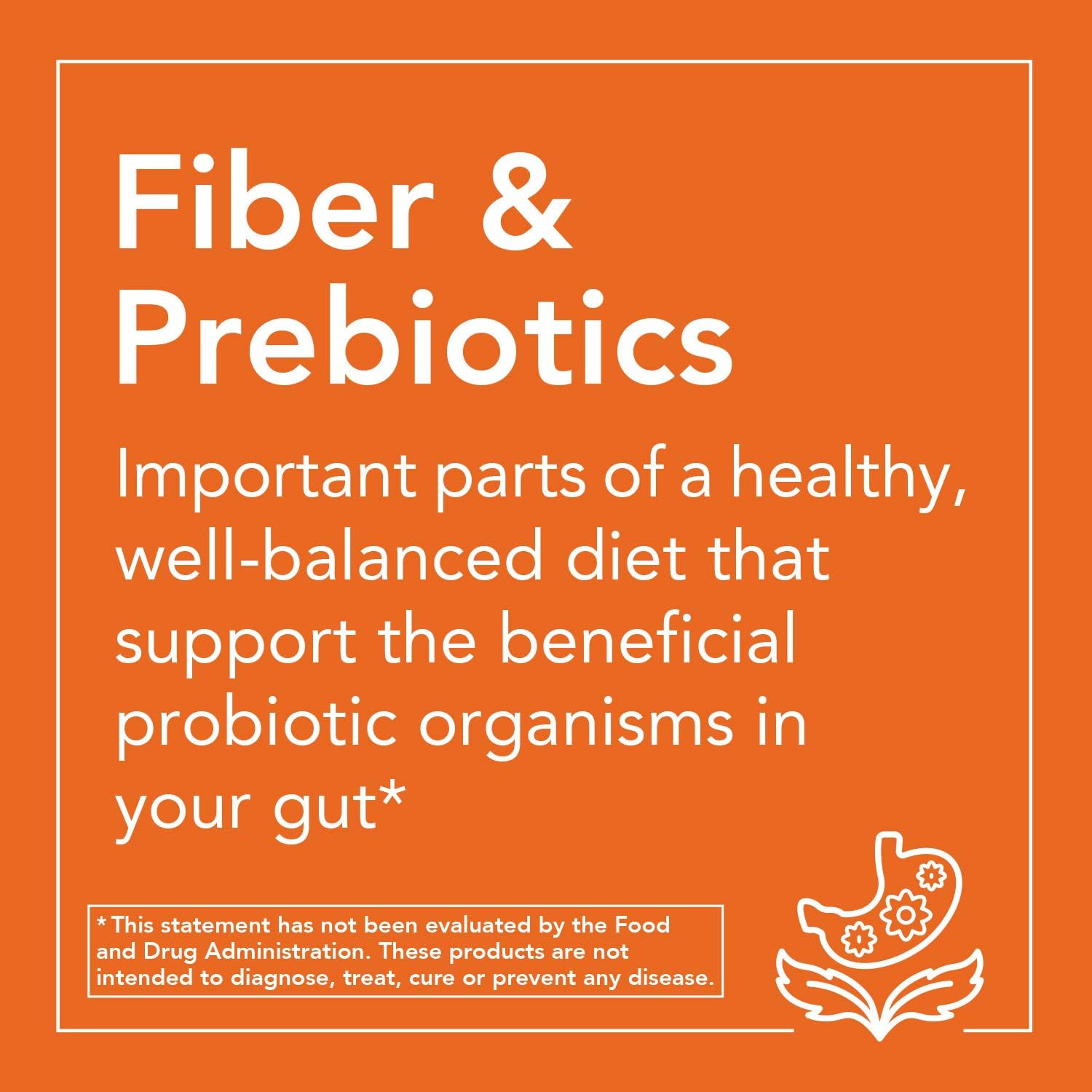
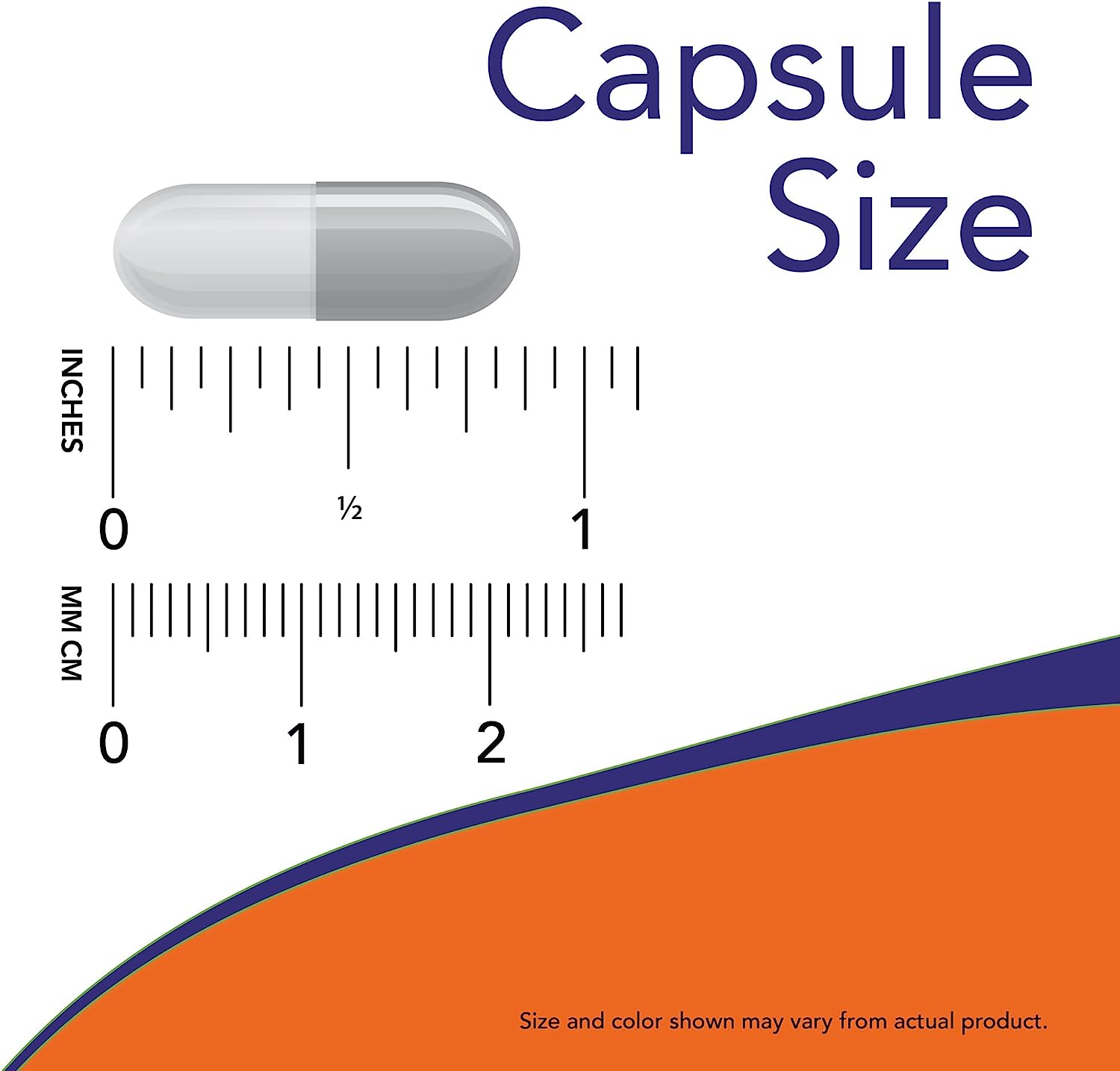
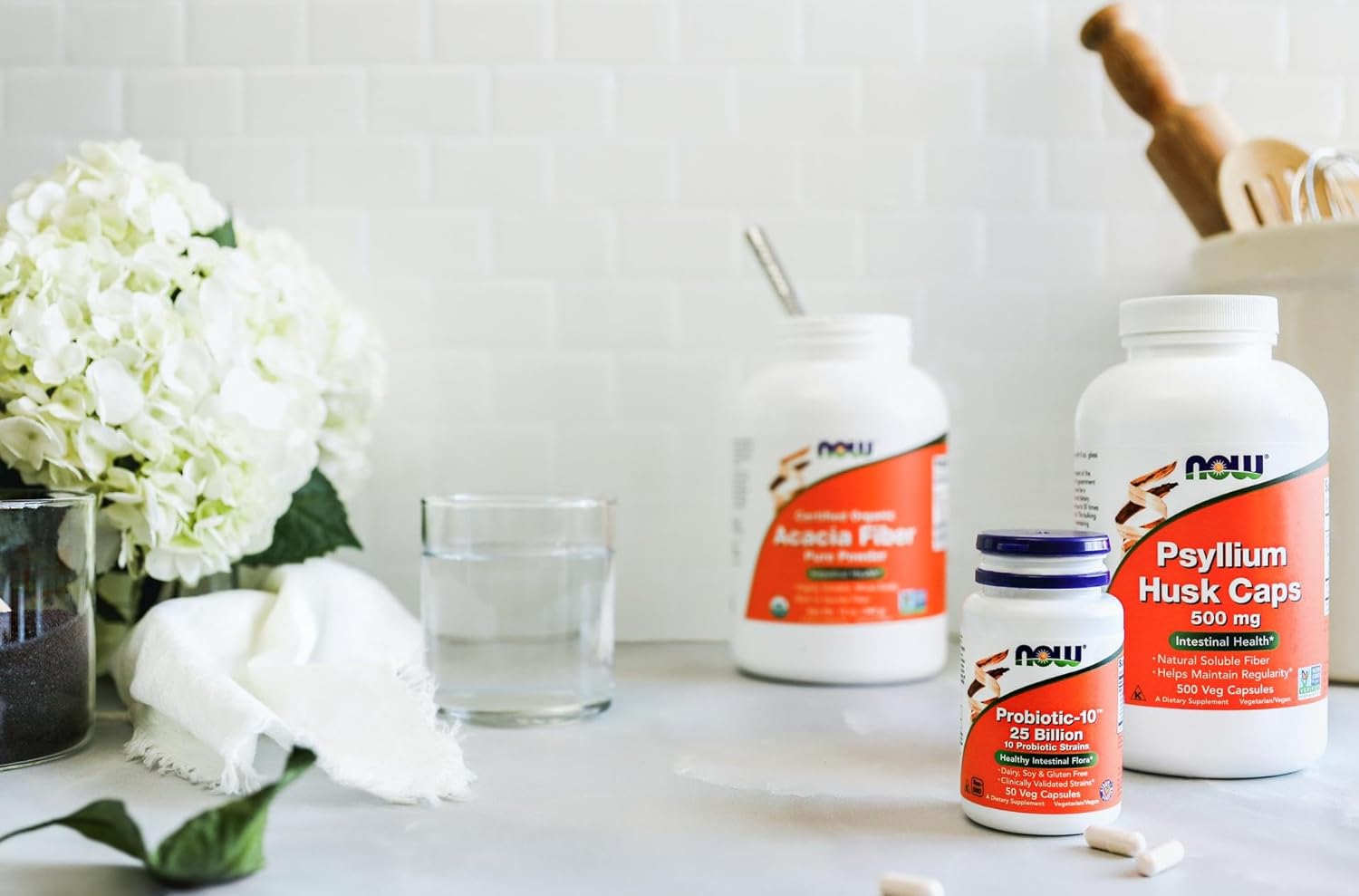
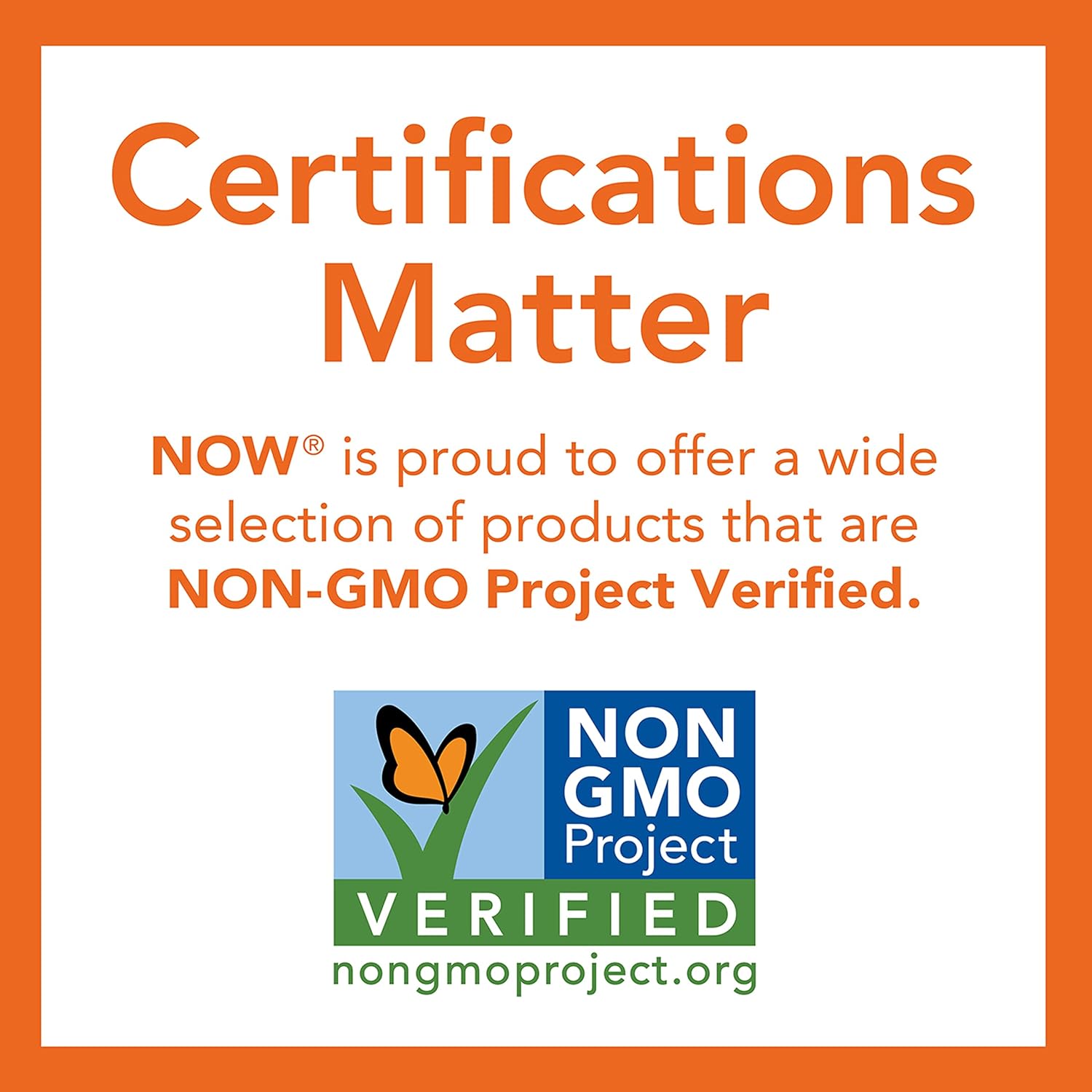

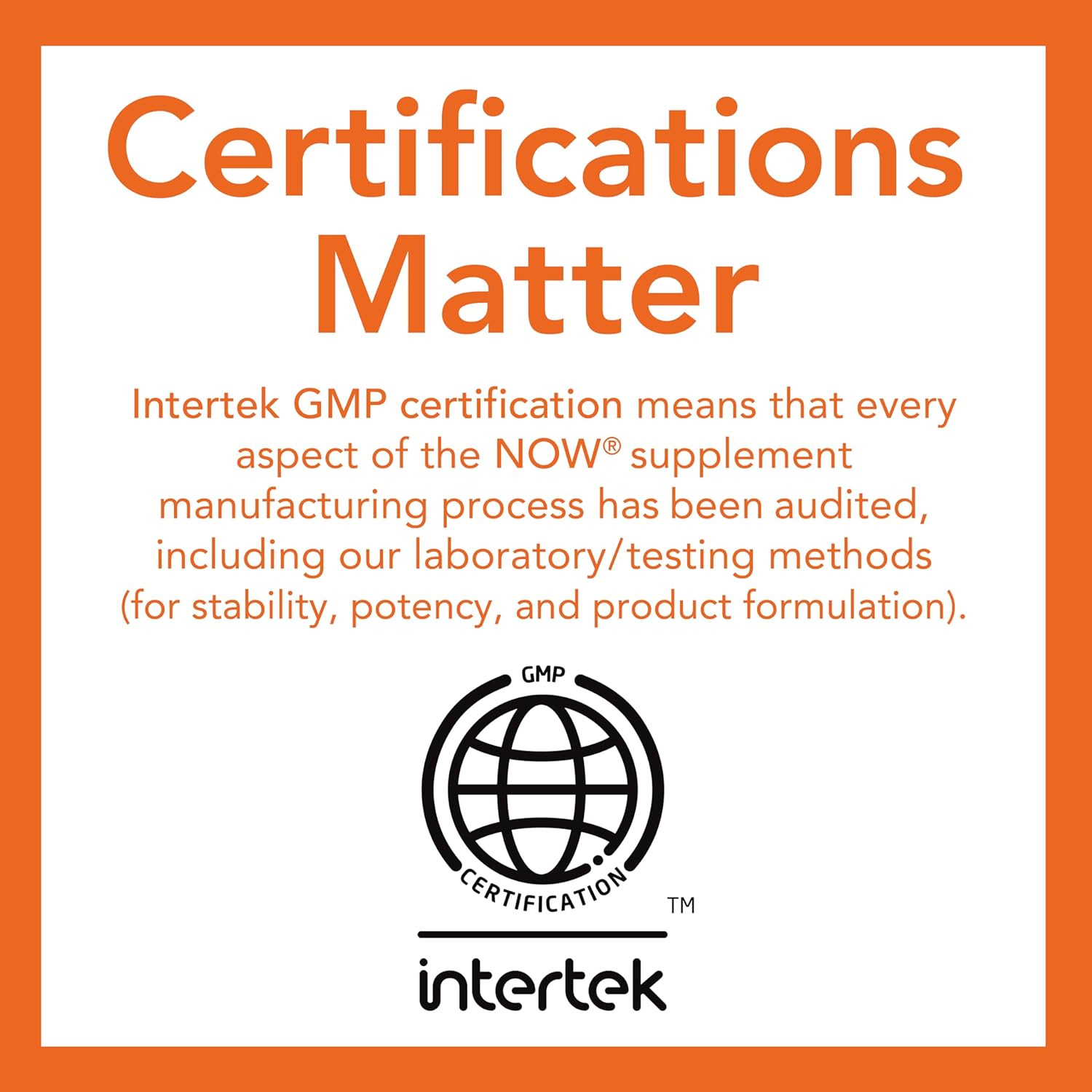
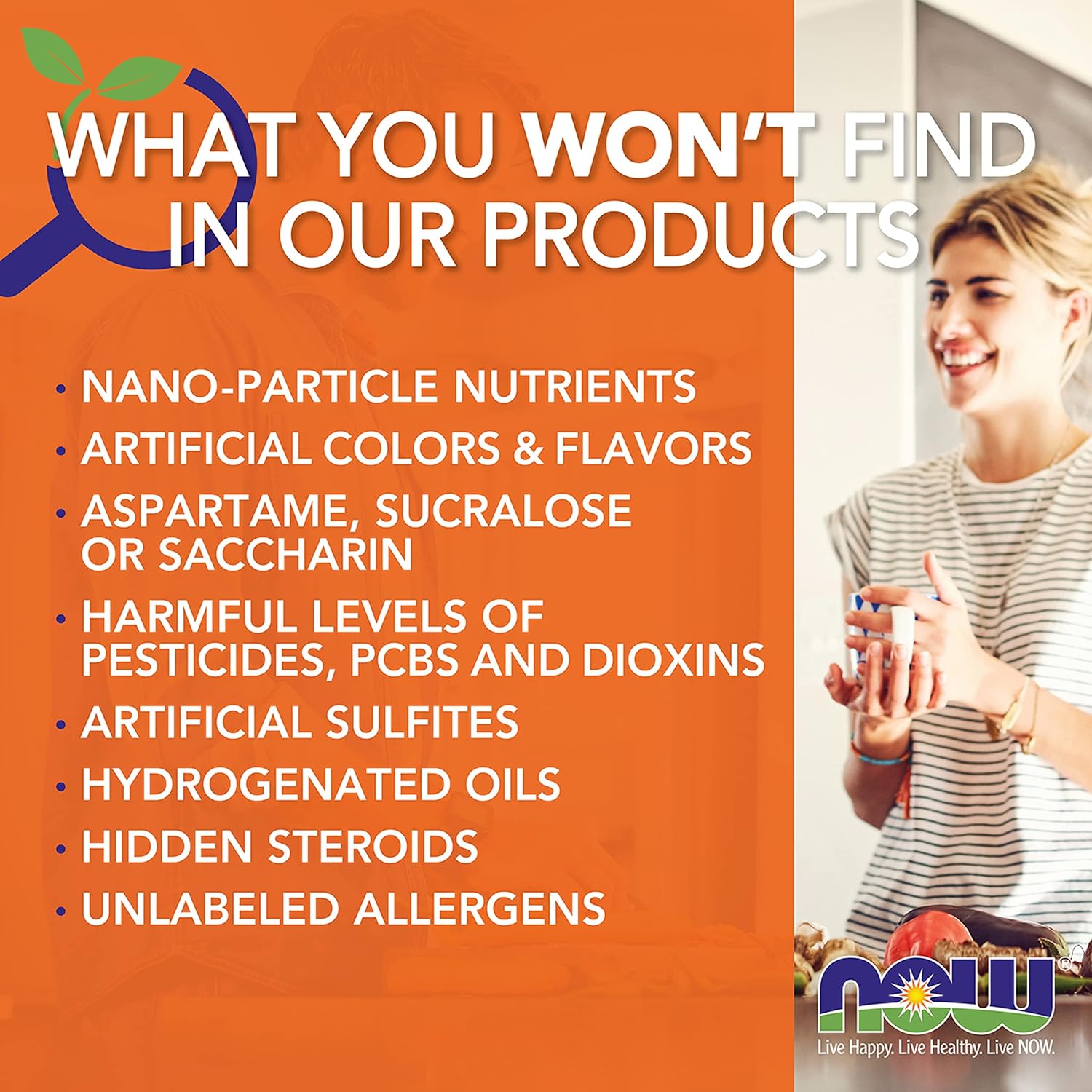
NOW Foods Psyllium Supplement - Supports Digestive Health, Non-GMO Verified - 500 Veg Capsules


Triticum Vulgare (Wheat) Gluten
Medium RiskTriticum vulgare (wheat) gluten is a protein derived from wheat that functions primarily as a binding agent in various food and cosmetic products. It provides texture and elasticity, making it a common ingredient in baked goods and some personal care items.
Sustai Insights
Wheat gluten offers functional benefits such as enhancing product texture and acting as a stabilizer. However, it poses moderate allergenic risks, particularly for individuals with gluten sensitivity or celiac disease. Environmental concerns are low, with no significant pollutant potential noted. Regulatory bodies do not impose major restrictions, but products must be clearly labeled for consumer safety. Overall, the risk level is assessed as medium. Safe usage practices should be observed, especially for sensitive populations, and alternatives like pea protein or other plant-based binders may be considered.
Zea Mays (Corn)
Low RiskZea mays (corn) fruit is derived from the plant Zea mays. It is commonly used in various cosmetic formulations for its functional properties, including acting as a humectant and providing texture in products.
Sustai Insights
Zea mays offers functional benefits such as moisture retention and improved product texture. It is considered safe with low health risks, including minimal concerns regarding carcinogenicity, allergies, or reproductive toxicity. Environmentally, it poses low risks, with no significant pollutant or bioaccumulation potential. Regulatory assessments do not indicate any restrictions. Overall, the ingredient is assessed as low risk, making it a viable option in cosmetic formulations.
Hydroxymethylcellulose
Low RiskHydroxymethylcellulose is a synthetic polymer derived from cellulose, primarily used as a thickening agent, emulsifier, and film-forming agent in various personal care and cosmetic products. It enhances texture, stability, and moisture retention, making it suitable for use in creams, lotions, and gels.
Sustai Insights
Hydroxymethylcellulose serves effectively as a thickener and stabilizer, contributing to product texture and moisture retention. It is considered low risk for health concerns such as carcinogenicity, allergies, and reproductive toxicity. Environmentally, it is not classified as a pollutant or bioaccumulative, aligning with regulatory standards in multiple regions. Overall, its risk level is assessed as low, with no significant adverse effects reported. Safe usage practices should be followed, and while alternatives exist, hydroxymethylcellulose remains a suitable choice in formulations.
Triticum Vulgare (Wheat)
Low RiskTriticum vulgare, commonly known as wheat, is a cereal grain primarily used in food products and various cosmetic formulations. It serves as a source of carbohydrates and can also function as a binding agent, thickener, or emulsifier in formulations. Wheat is widely recognized for its role in nutrition and its diverse applications in the food industry.
Sustai Insights
Triticum vulgare offers functional benefits as a binding agent and source of carbohydrates, with sustainable attributes if sourced responsibly. Health risks are low, with minimal concerns regarding carcinogenicity, allergies, or reproductive toxicity. Environmental risks, including pollution potential, are also low. Regulatory bodies do not currently impose restrictions on its use. Overall, the risk level associated with this ingredient is low, making it a safe choice for both consumers and the environment.
Milk
Low RiskMilk is whole milk from cows, primarily used as a source of nutrition and an ingredient in various food products. It contains proteins, fats, carbohydrates, vitamins, and minerals, contributing to its functional benefits in culinary applications.
Sustai Insights
Milk provides essential nutrients and serves as a versatile ingredient in food, enhancing flavor, texture, and nutritional value. It is generally regarded as safe with low concerns for carcinogenicity, allergies, or developmental toxicity. Environmental risks are minimal, and regulatory bodies impose no significant warnings. However, individuals with lactose intolerance or dairy allergies should exercise caution. Overall, milk is assessed as low risk based on current scientific consensus.
Sesamum Indicum (Sesame) Oil
Low RiskSesamum indicum (sesame) oil is derived from the seeds of the sesame plant. It is commonly used in cosmetic formulations due to its emollient properties and ability to nourish the skin. This oil is rich in fatty acids and antioxidants, contributing to its effectiveness in various skincare products.
Sustai Insights
Sesame oil offers several functional benefits, including moisturization and nourishment for the skin, along with potential antioxidant properties. It is generally regarded as safe, with low concerns regarding carcinogenicity, allergies, and reproductive toxicity. Environmental risks are minimal, and the oil is not known to be bioaccumulative. Regulatory bodies do not impose significant restrictions on its use. Overall, sesame oil poses a low risk, making it a viable ingredient in cosmetic formulations, although consumers should consider potential allergies and choose responsibly sourced products.
Egg
Low RiskEgg is the entire content of chicken eggs, commonly used as an ingredient in various products for its nutritional and functional properties.
Sustai Insights
Eggs are known for their functional benefits, including serving as a binding agent and providing protein. They are typically sustainably sourced and biodegradable. Health risks are considered low, with minimal concerns regarding carcinogenicity, allergies, or reproductive toxicity. Environmental risks are also low, with no significant pollutant potential. Regulatory bodies do not impose current restrictions on egg usage. Overall, the risk level is low, and safe usage practices should be observed, though alternatives like plant-based substitutes may be considered for those with allergies.
Zea Mays (Corn)
Low RiskZea mays (corn) fruit is derived from the plant Zea mays. It is commonly used in various cosmetic formulations for its functional properties, including acting as a humectant and providing texture in products.
Sustai Insights
Zea mays offers functional benefits such as moisture retention and improved product texture. It is considered safe with low health risks, including minimal concerns regarding carcinogenicity, allergies, or reproductive toxicity. Environmentally, it poses low risks, with no significant pollutant or bioaccumulation potential. Regulatory assessments do not indicate any restrictions. Overall, the ingredient is assessed as low risk, making it a viable option in cosmetic formulations.
Hydroxymethylcellulose
Low RiskHydroxymethylcellulose is a synthetic polymer derived from cellulose, primarily used as a thickening agent, emulsifier, and film-forming agent in various personal care and cosmetic products. It enhances texture, stability, and moisture retention, making it suitable for use in creams, lotions, and gels.
Sustai Insights
Hydroxymethylcellulose serves effectively as a thickener and stabilizer, contributing to product texture and moisture retention. It is considered low risk for health concerns such as carcinogenicity, allergies, and reproductive toxicity. Environmentally, it is not classified as a pollutant or bioaccumulative, aligning with regulatory standards in multiple regions. Overall, its risk level is assessed as low, with no significant adverse effects reported. Safe usage practices should be followed, and while alternatives exist, hydroxymethylcellulose remains a suitable choice in formulations.
Triticum Vulgare (Wheat)
Low RiskTriticum vulgare, commonly known as wheat, is a cereal grain primarily used in food products and various cosmetic formulations. It serves as a source of carbohydrates and can also function as a binding agent, thickener, or emulsifier in formulations. Wheat is widely recognized for its role in nutrition and its diverse applications in the food industry.
Sustai Insights
Triticum vulgare offers functional benefits as a binding agent and source of carbohydrates, with sustainable attributes if sourced responsibly. Health risks are low, with minimal concerns regarding carcinogenicity, allergies, or reproductive toxicity. Environmental risks, including pollution potential, are also low. Regulatory bodies do not currently impose restrictions on its use. Overall, the risk level associated with this ingredient is low, making it a safe choice for both consumers and the environment.
Milk
Low RiskMilk is whole milk from cows, primarily used as a source of nutrition and an ingredient in various food products. It contains proteins, fats, carbohydrates, vitamins, and minerals, contributing to its functional benefits in culinary applications.
Sustai Insights
Milk provides essential nutrients and serves as a versatile ingredient in food, enhancing flavor, texture, and nutritional value. It is generally regarded as safe with low concerns for carcinogenicity, allergies, or developmental toxicity. Environmental risks are minimal, and regulatory bodies impose no significant warnings. However, individuals with lactose intolerance or dairy allergies should exercise caution. Overall, milk is assessed as low risk based on current scientific consensus.
Sesamum Indicum (Sesame) Oil
Low RiskSesamum indicum (sesame) oil is derived from the seeds of the sesame plant. It is commonly used in cosmetic formulations due to its emollient properties and ability to nourish the skin. This oil is rich in fatty acids and antioxidants, contributing to its effectiveness in various skincare products.
Sustai Insights
Sesame oil offers several functional benefits, including moisturization and nourishment for the skin, along with potential antioxidant properties. It is generally regarded as safe, with low concerns regarding carcinogenicity, allergies, and reproductive toxicity. Environmental risks are minimal, and the oil is not known to be bioaccumulative. Regulatory bodies do not impose significant restrictions on its use. Overall, sesame oil poses a low risk, making it a viable ingredient in cosmetic formulations, although consumers should consider potential allergies and choose responsibly sourced products.
Egg
Low RiskEgg is the entire content of chicken eggs, commonly used as an ingredient in various products for its nutritional and functional properties.
Sustai Insights
Eggs are known for their functional benefits, including serving as a binding agent and providing protein. They are typically sustainably sourced and biodegradable. Health risks are considered low, with minimal concerns regarding carcinogenicity, allergies, or reproductive toxicity. Environmental risks are also low, with no significant pollutant potential. Regulatory bodies do not impose current restrictions on egg usage. Overall, the risk level is low, and safe usage practices should be observed, though alternatives like plant-based substitutes may be considered for those with allergies.
Triticum Vulgare (Wheat) Gluten
Medium RiskTriticum vulgare (wheat) gluten is a protein derived from wheat that functions primarily as a binding agent in various food and cosmetic products. It provides texture and elasticity, making it a common ingredient in baked goods and some personal care items.
Sustai Insights
Wheat gluten offers functional benefits such as enhancing product texture and acting as a stabilizer. However, it poses moderate allergenic risks, particularly for individuals with gluten sensitivity or celiac disease. Environmental concerns are low, with no significant pollutant potential noted. Regulatory bodies do not impose major restrictions, but products must be clearly labeled for consumer safety. Overall, the risk level is assessed as medium. Safe usage practices should be observed, especially for sensitive populations, and alternatives like pea protein or other plant-based binders may be considered.
Experience the power of natural health with NOW Foods Psyllium Husk Caps. These Non-GMO Project Verified capsules are packed with soluble fiber, promoting intestinal health and regularity. With 500 mg per capsule, they offer a convenient way to boost your dietary fiber intake, supporting overall wellness.
- Supports Digestive Health: Psyllium can expand in liquid, aiding in regularity and gastrointestinal comfort.
- Natural Fiber Source: Helps bridge the gap in fiber intake, addressing common dietary deficiencies.
- Clean and Ethical: Certified kosher, vegan, and gluten-free; made without artificial additives, ensuring you consume only the best.
- Quality You Can Trust: Manufactured in a GMP-certified facility, adhering to strict quality standards for safety and efficacy.
- Sustainable Packaging: Bottles made from 100% post-consumer recycled resin, aligning with eco-conscious values.
Feel empowered to take charge of your health with a product that embodies integrity and quality.
Subscribe & Save with Sustai
- Best Price Guarantee: Always enjoy the lowest prices on sustainable home essentials.
- No Surprises: We’ll notify you before shipping. No hidden fees, ever.
- You’re in Charge: Change, pause, or cancel your subscription anytime with ease.
- Eco-Friendly Deliveries: Our grouped shipments mean less packaging and lower emissions.
Join us on a sustainable journey. Special offers for a limited time! Prices and promotions may change.
Recommended Products
Experience the power of natural health with NOW Foods Psyllium Husk Caps. These Non-GMO Project Verified capsules are packed with soluble fiber, promoting intestinal health and regularity. With 500 mg per capsule, they offer a convenient way to boost your dietary fiber intake, supporting overall wellness.
- Supports Digestive Health: Psyllium can expand in liquid, aiding in regularity and gastrointestinal comfort.
- Natural Fiber Source: Helps bridge the gap in fiber intake, addressing common dietary deficiencies.
- Clean and Ethical: Certified kosher, vegan, and gluten-free; made without artificial additives, ensuring you consume only the best.
- Quality You Can Trust: Manufactured in a GMP-certified facility, adhering to strict quality standards for safety and efficacy.
- Sustainable Packaging: Bottles made from 100% post-consumer recycled resin, aligning with eco-conscious values.
Feel empowered to take charge of your health with a product that embodies integrity and quality.

You can have at most 2 Sustainable Steals products in your cart
Customer Reviews
Customers’ View
Customers appreciate the effectiveness and value of NOW Supplements Psyllium Husk Capsules, noting their role in enhancing digestive wellness. Many users highlight the product's ability to support regularity and alleviate constipation, with comments such as, "It works well to augment my diet and keep things moving." The capsules are also praised for being easy to swallow and a convenient alternative to powdered fiber supplements. Additionally, the product is recognized for its non-GMO and vegan credentials, aligning with health-conscious and environmentally aware values. Users frequently mention the reasonable pricing, stating it's a cost-effective way to increase fiber intake. Overall, customers find this supplement beneficial for digestive health while supporting a sustainable lifestyle.
AI-generated from the text of customer reviewsThis product is rated 4.4 of 5.0 stars.
It has received 171 reviews.





